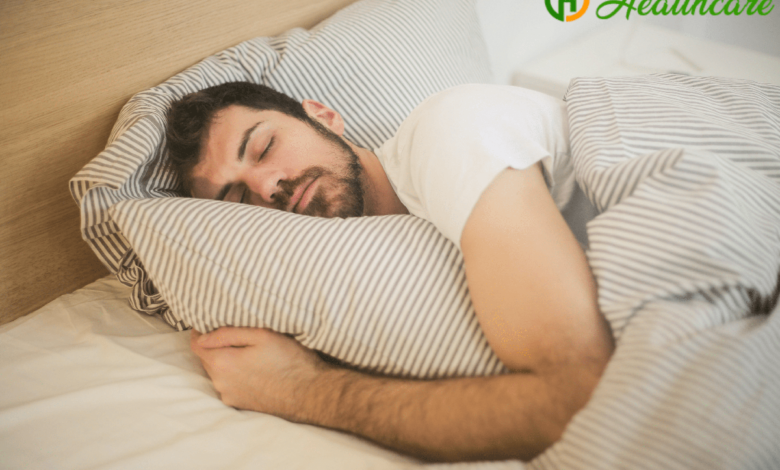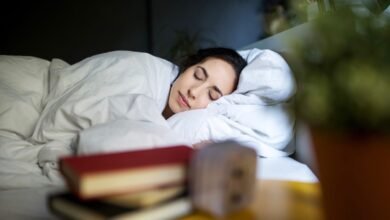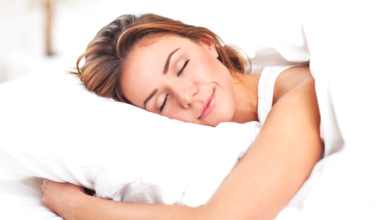7 Tips for a Better Night’s Sleep

 Getting a good night’s sleep is crucial for overall health and well-being. Sleep allows the body to repair and rejuvenate, which helps us function properly throughout the day. Unfortunately, many people struggle with falling asleep or staying asleep throughout the night. In this article, we will discuss seven tips for a better night’s sleep that can help you get the rest you need.
Getting a good night’s sleep is crucial for overall health and well-being. Sleep allows the body to repair and rejuvenate, which helps us function properly throughout the day. Unfortunately, many people struggle with falling asleep or staying asleep throughout the night. In this article, we will discuss seven tips for a better night’s sleep that can help you get the rest you need.
Introduction
Are you having trouble falling asleep or staying asleep throughout the night? You’re not alone. Sleep is essential for our overall health and well-being, but many people struggle to get the rest they need. In this article, we will provide you with seven tips for a better night’s sleep that you can start implementing today. From sticking to a consistent sleep schedule to investing in a comfortable mattress and pillows, these tips will help you improve the quality of your sleep and wake up feeling refreshed and rejuvenated.
Read More: A New Study Confirms that Better Sleep Boosts Your Sex Life
Stick to a Consistent Sleep Schedule
Your body has an internal clock that regulates your sleep-wake cycle, also known as your circadian rhythm. If you go to bed and wake up at different times each day, it can disrupt this rhythm and make it harder for you to fall asleep at night. Therefore, it’s essential to stick to a consistent sleep schedule, even on weekends or days off. Aim to go to bed and wake up at the same time every day, and your body will learn to associate those times with sleep and wakefulness, making it easier for you to fall asleep and wake up naturally.
Create a Relaxing Bedtime Routine
Creating a relaxing bedtime routine can help signal to your body that it’s time to wind down and prepare for sleep. Start by setting aside some time before bed to relax and unwind. You can take a warm bath, listen to calming music, practice meditation or deep breathing, or read a book.
Limit Screen Time Before Bed

The blue light emitted by electronic devices such as smartphones, tablets, and computers can suppress the production of the sleep hormone melatonin, making it harder to fall asleep. Therefore, it’s important to limit screen time before bed, ideally for at least an hour. Consider implementing a “digital detox” before bed, where you put away all electronic devices and engage in relaxing activities instead. This can include reading a book, taking a bath, practicing yoga or meditation, or simply spending time with loved ones. By reducing screen time before bed, you can improve the quality of your sleep and wake up feeling more rested.
Avoid Caffeine, Alcohol, and Nicotine
Caffeine, alcohol, and nicotine can all interfere with your sleep quality. Caffeine is a stimulant that can keep you awake and alert, so it’s best to avoid consuming it in the late afternoon or evening. Alcohol, on the other hand, may help you fall asleep faster, but it can disrupt the quality of your sleep and cause you to wake up frequently during the night. And nicotine is a stimulant that can interfere with your ability to fall asleep and stay asleep. Therefore, it’s best to avoid these substances altogether, or at least limit your consumption to earlier in the day.
Make Your Sleep Environment Comfortable
Your sleep environment plays a crucial role in the quality of your sleep. Make sure your bedroom is quiet, dark, and cool, with comfortable bedding and a supportive mattress and pillows. If noise is an issue, consider using earplugs or a white noise machine to block out external sounds. If light is a problem, try using blackout curtains or an eye mask to create a dark environment. And if you’re too hot or too cold at night, adjust your room temperature accordingly to ensure optimal sleeping conditions.
Exercise Regularly

Regular exercise can improve the quality and duration of your sleep by reducing stress, anxiety, and depression. It can also help regulate your body temperature, which can promote restful sleep. However, it’s essential to time your workouts properly – exercising too close to bedtime can leave you feeling energized and alert, making it harder to fall asleep. Therefore, aim to finish your workouts at least two to three hours before bedtime to give your body enough time to wind down and prepare for sleep.
Consider seeking professional help
If you’ve tried implementing the above tips and are still experiencing difficulty sleeping, it may be beneficial to seek professional help. A healthcare provider can evaluate your sleep habits and provide personalized recommendations to improve your sleep. Additionally, they may suggest cognitive-behavioral therapy (CBT) for insomnia, a type of talk therapy that has been shown to be effective in treating sleep disorders.
Conclusion
Getting a good night’s sleep is crucial for our physical and mental health. It can improve our mood, energy levels, and overall well-being. By following these seven tips, you can improve the quality of your sleep and wake up feeling rested and ready to tackle the day ahead. Remember to stick to a consistent sleep schedule, create a relaxing bedtime routine, and make your sleep environment comfortable and conducive to restful sleep. With these tips, you’ll be on your way to a better night’s sleep in no time.
Read More:
FAQs
Q1. How much sleep do I need each night?
The recommended amount of sleep for adults is 7-9 hours per night.
Q2. Can napping during the day affect my sleep at night?
Yes, taking long naps during the day can make it harder to fall asleep at night.
Q3. Is it okay to use sleeping pills to help me fall asleep?
Sleeping pills should only be used under the guidance of a healthcare professional, as they can be addictive and have side effects.
Q4. What should I do if I can’t fall asleep?
If you can’t fall asleep, try getting out of bed and doing a relaxing activity until you feel tired. Avoid using electronic devices or doing anything stimulating.
Q5. Are there any natural remedies that can help me sleep better?
Some natural remedies that can help promote better sleep include chamomile tea, lavender essential oil, and valerian root. However, it’s important to talk to your healthcare provider before trying any new remedies.







